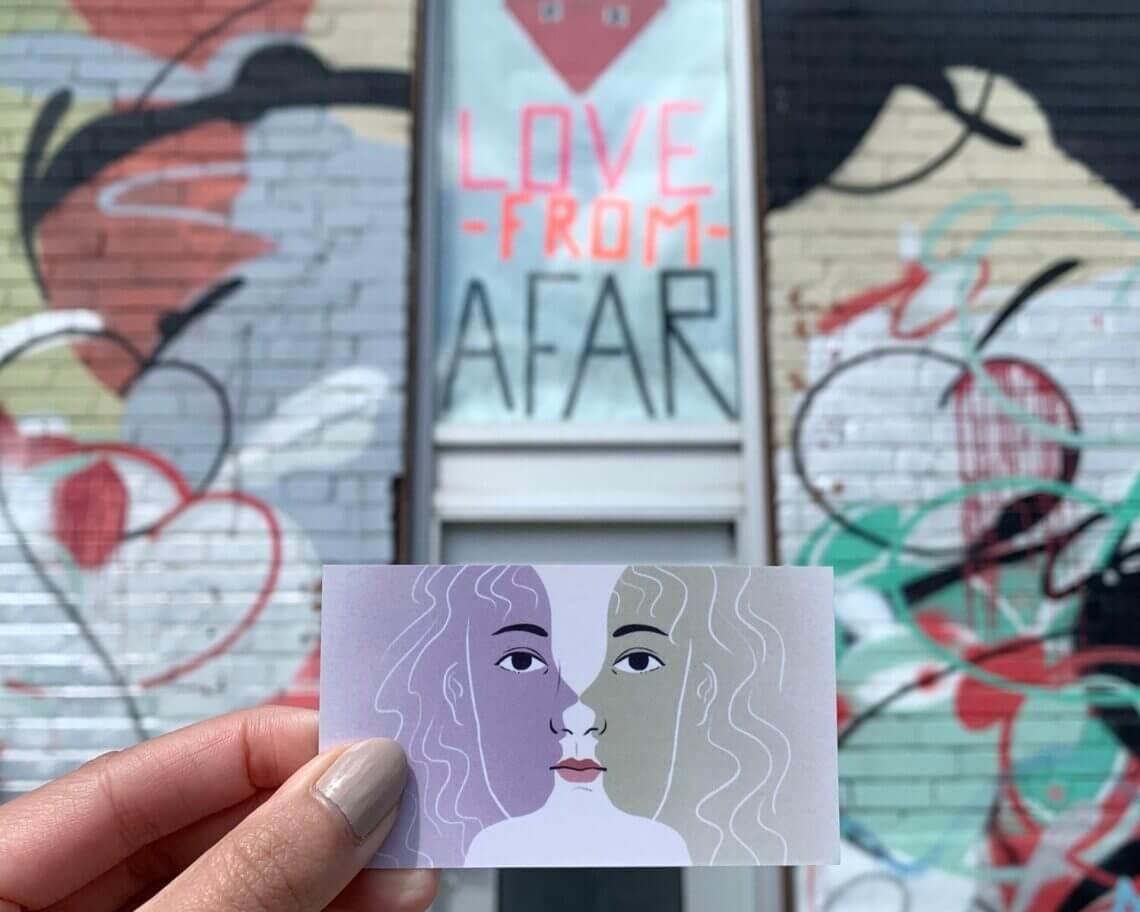
Living Hyphen helps multicultural Canadians explore their identities
Growing up in Canada, Justine Abigail Yu is always exploring her identity.
“Being a Filipina-Canadian, [you feel] this sort of push and pull being in between these two places, these two cultures,” Yu said.
Yu knew she wasn’t alone in this. Growing up in Markham, Yu was surrounded by a very diverse community.
“Some of my best friends are Vietnamese, Chinese. I grew up with Italians, people from the Caribbean, all over the place,” she said. “And I know we all have so much in common. The more I spoke about my experiences with living in between cultures, I realized how a lot of these things are actually common.”
As a result, Yu created Living Hyphen, a creative arts magazine filled with pieces including short stories, poetry, screenplays, graphic design and photo essays.
“I wanted to create a space not just for Filipino-Canadians but for all people who identified as ‘hyphenated’ Canadians, as people who identify as living in between cultures as part of a diaspora,” she said.
“Culturally, we might be different. The details might be different, but I feel like the overall overarching experience is very similar. So that’s where the idea came from.”
Yu says she can pinpoint the exact moment as to why she chose to independently create this magazine back to 2015, when she was part of the organizing committee for the Feminist Art Collective (FAC)’s annual arts conference.
“In that particular year, I was helping with the panel that was for writers of colour in the publishing industry,” she said. “It was this panel about — I think — four or five different writers of colour who were basically sharing how difficult it actually is to get their work published in Canadian literature space as a person of colour.”
Writer Naoko Kumagai’s story stood out to Yu the most.
“[Kumagai’s] story was all about exploring identity, going back to the homeland and exploring all of these things. She noted that her editor returned her manuscript with the feedback saying that it ‘wasn’t Japanese enough.’ And she was just like ‘What does that even mean, when I am Japanese and this is my experience?’” Yu said.
“It just really infuriated me and also maybe scared me that someone would tell me that my experience is invalid. I feel like I’ve done that enough to myself that I don’t need my editor to tell me that.”
Despite finding the motivation to create Living Hyphen, Yu was initially hesitant to go through with it.
“A lot of it was doubt,” she said. “I remember questioning whether or not this was worth pursuing. I spent a lot of time asking other people who I knew were working in Canadian arts and literature, asking them if there was something like this already [existing]. I was worried that if it did exist, then I don’t want to compete. I don’t want to replicate anything, there’s already space for it, let’s highlight that space.”
It wasn’t until Yu had a conversation with publisher and FOLD member, Léonicka Valcius, that prompted her to start this magazine.
“She said ‘Justine, how many magazines currently exist that are for white women’s wellness, fashion and beauty?” Yu said. “No one is telling them to stop creating those magazines. So why would something being in existence stop you from creating another space? The more spaces for our voices, the better it is.’”
Yu said that as a person of colour, she has always felt an underlying mentality that “one thing” — such as a creative space — is good enough. She said that she realized this isn’t truly the case.
“The world is endless and infinite and we can do whatever we want,” Yu said. “My spin on this publication could be very different from someone else’s spin on their publication.”
Yu sent a call for submissions in the summer of 2017 on her social media platforms. With the help of her mother — who aided financially and with the printing process — and with the help of long-time friend, Josh Layton — who provided the creative direction — Living Hyphen launched its inaugural issue, Entrances & Exits, in Oct. 2018.
Since then, Living Hyphen’s reach has expanded. It is now available in 21 different stores, bookshops, and cafes across Canada and the United States. It is also available in libraries across Canada. Some of the content in the inaugural issue has been included in a Filipino-specific curriculum for the Toronto Catholic District School Board.
The magazine also expanded by hosting open-mic nights and providing writing workshops, which are currently being done virtually due to COVID-19.
According to Yu, this expansion was not part of the original plan. It wasn’t until she got into the editing process when she realized how needed these events and workshops were to her.
“Beyond representation, beyond seeing yourself in pages, Black, Indigenous, and people of colour need the mentorship, need the resources, need these kinds of programs to actually encourage them to even put pen to paper, to even give voice to their story,” she said. “Because from Day 1, we’re told that our stories aren’t valid, our stories aren’t enough, we’re not Canadian enough, I’m not Filipino enough, I’m not this, this, this and this.”
Yu said most people who submitted to the magazine’s inaugural issue were “ready to share their stories.” She added that it’s important to her to reach people who aren’t as ready.
“I also wanted to reach the people who weren’t there yet because there’s so much untapped potential out there,” she said.
As the Black Lives Matter movement gained new momentum in 2020, Yu said that her magazine’s message is now more important than ever.
“I want to highlight the fact that Living Hyphen is also made up of Black artists and writers. There’s a nuance there in that it is not outside of this community, it is part of our community, it is part of this family,” she said. “So as that community of people who are coming from different diasporas around the world, I think our work is even more critical.
[Living Hyphen] talks about the experiences here in Canada where one: we’re all immigrant settlers, we are all on stolen land. And two: we are in a country that was built on the backs of Black people — people who themselves were stolen from their own homelands. So that — as a publication, as a community that explores identity, migration, and home, and belonging — what does all of that mean? I think it has put even more weight and significance into the work that we’re doing, and intentionality into the work that we’re doing.”
To learn more about the magazine and upcoming Fall workshops, visit livinghyphen.ca.
About the author
Ramona Leitao is a former managing editor of Youth Mind. When not writing, or taking photos, you’ll find her baking her signature baguettes while crying to Studio Ghibli soundtracks.







